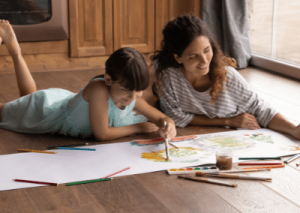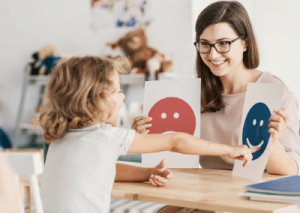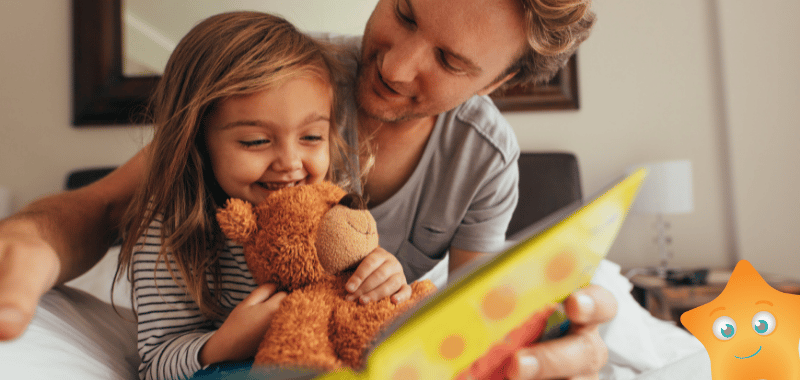Because COVID-19 put in-person school on hold — well, put life on hold — young children have been missing out on developing social and emotional skills from social experiences. Now, more than ever before, we turn to the parents for this crucial part of early child development. Parent-child interactions can provide children with early socializationexperiences that promote the development of several key social and emotional skills. These skills nurture healthy minds, and enhance children’s ability to succeed in all areas of life. By fostering these skills, parents can:
- Encourage children to be motivated and responsible for their own learning;
- Improve emotional regulation skills that enhance children’s mental well-being; and
- Prepare young children for socializing in school and other social settings.
All of these benefits lead to one amazing outcome: school success!

Do social and emotional skills really benefit learning?
According to the Aspen Institute, more than 9 out of 10 teachers agree that social and emotional development is key to school success. These skills can help children adapt easier to the school environment, which in turn gives them more confidence in the classroom. They also enhance creativity and critical thinking skills, which encourage children to be motivated and enthusiastic in their learning. Even more, strong social and emotional skills promote positive behaviours in the classroom, including empathy, teamwork and stress resilience, and reduce negative behaviours, like conduct problems and emotional distress. So…yes! Social and emotional skills benefit learning in countless ways. As the world slowly reopens and kids start to go back to school, now is a great time to prioritize their social and emotional development.
Parents play an important role in developing these skills
Parents are almost always their child’s first teacher. A substantial body of research indicates that the parent-child relationship is consistently the one with the most significant effect on social and emotional development. A 2011 study from the Journal of Child Development found that as parent involvement increased over time, children’s social skills also increased, while problem behaviours decreased. These behaviours include externalizing problems like aggression and delinquency, as well as internalizing problems such as anxiety and depression. Research by theHarvard Family Research Project found that children whose parents regularly participate in their play are more likely to show prosocial behaviour at school. Recent research from Yale University found that toddlers whose parents provided more learning materials at home demonstrated significant improvements in their cognitive, social and emotional skills. The bottom line? Parent involvement is the answer to raising the healthiest and happiest children possible.
Ways parents can get started on teaching social and emotional skills at home
- Engage in creative play. This could include doing a craft or playing a game together. Creative play is one of the very first ways children acquire social skills.

- Teach feeling words. This helps children understand and communicate what they are feeling. You can also teach them to express emotions through drawings, colours or facial expressions.

- Teach self-reflection. Encouraging children to reflect on their own and others’ feelings is a great way to develop their emotional intelligence. Parents can initiate reflection by asking “why do you think that makes you sad?”, or “I liked how nice you were to your friend today!”.

- Practice listening. Sometimes children don’t need advice or a solution, they just need your listening ear

- Teach mindfulness as a coping mechanism. When your child is struggling with a bad mood or a stressful event, it is helpful for them to know how to self-soothe in a healthy way. This could be as simple as taking a few deep breaths or going on a walk.

- Model the behaviours you want to see in your children. Children learn lots from observing others. For instance, if you want your child to learn how to stay calm when under stress, you need to work on that same skill!


